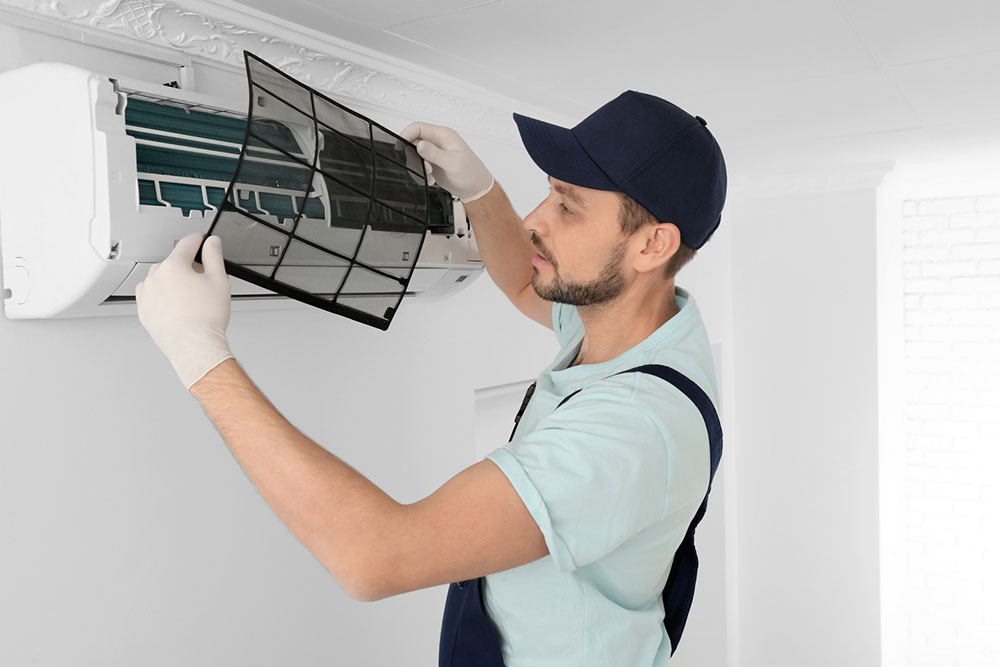10 air conditioner mistakes that waste energy and money

As the summer heat increases, more and more individuals around the country are bringing home air conditioning systems (ACs) to keep cool. Although these devices are sturdy, one must use them carefully to ensure maximum energy efficiency. Not doing so could be costly for the environment and one’s pockets. Most people make these ten common mistakes while using their ACs, leading to a waste of energy and money with time.
Blocking the air vents
Blocking the unit’s air vents is a big mistake that wastes lots of energy. Placing furniture, curtains, or other objects in front of the vents blocks air circulation, so the room takes longer to cool. As a result of the obstruction, the AC has to work longer, putting a lot of strain on the system. This can also lead to increased wear and tear or internal damage, requiring more upkeep. To avoid this mistake, one should keep the area in front of the air vents clear of any obstacles.
Forgetting to clean the air filter
The AC unit constantly sucks in air from the surroundings. This air then undergoes a chemical reaction that converts it from gas to liquid and back to gas, which helps bring down the temperature. However, the air absorbed into the system carries a lot of dust, dirt, and dander, which the filters catch. So, one must clean the filters frequently. Forgetting to do so can make the AC work harder. It could also push dust into the room or damage the cooling unit internally. Regularly cleaning the filter helps the system work more efficiently and allows cool, clean air to circulate faster throughout the room.
Installing AC units in a sunny spot
Window AC units must be installed in a spot under a shade. Placing them under the sun’s direct heat causes them to work harder, which consumes more energy. For ACs with outdoor units, experts advise installing them in a clear spot where trees, shrubs, or any other structures do not block them. One should also ensure the device is sealed in properly and no gaps are left for the cool air to escape.
Waiting until summer to check on the AC
Most people wait until summer to check on their AC units. While this may sound normal, it is not a good idea. The reason behind this is simple. Not checking the AC beforehand can cause cooling problems at the peak of summer. AC companies tend to be the busiest around this time, making it difficult to have any troubles fixed promptly. So, one must have the AC tuned up around the spring months to ensure it is ready to keep the home cool throughout the summer.
Ignoring preventative maintenance
This ties in rather well with the previous point. In addition to special check-ups and tuning just before summer, one should try to follow a regular maintenance schedule throughout the year. For window ACs, this can be as simple as installing them at the right place and cleaning the air filters regularly. For larger HVAC units, however, this is a bit more tedious. One will have to clean the condenser coils in the exterior box of the HVAC system at least twice a year.
People should schedule a yearly tune-up appointment with an air conditioning technician. It may include recharging the refrigerant, ensuring proper lubrication in the system, and checking and replacing dirty coils, old air filters, and clogged condensate drains. Actively taking care of the HVAC unit can prolong its lifespan and ensure efficient functioning.
Letting the AC run all day
Leaving the unit running all day, even when no one is at home, is a bad habit many people follow. This mistake can increase energy consumption and utility bills.
Not investing in a programmable thermostat
Gone are the days when one had to adjust the thermostat frequently to maintain the room’s temperature. Today, individuals can simply invest in a programmable thermostat. It can manage the home’s temperature throughout the day and help significantly reduce cooling costs. The device can also automatically shut off the AC when not required, helping increase its lifespan.
Forgetting to check the drain
Some ACs use drains to collect moisture and direct it outside the house. These can get clogged over time, leading to problems with the AC and the surrounding walls and flooring. One should clean the drains at least once every two years to avoid clogging.
Setting the temperature too low
Some people do not understand how an AC system works. They believe that turning the temperature all the way down will make the room cool faster. It does not work like that! Air conditioners run at the same power to reach any set temperature. Setting the temperature lower than required only makes the cooling system work longer, which can be detrimental in the long run. Instead of doing this, individuals can consider investing in a programmable thermostat and setting it at the required temperature, not lower.
Shutting doors inside the home
In homes with a centralized cooling system, shutting the doors may be counterproductive. With the doors closed, the cool air does not have the chance to circulate in the house, making the HVAC system work harder. This ultimately leads to increased energy consumption and high electricity bills.


